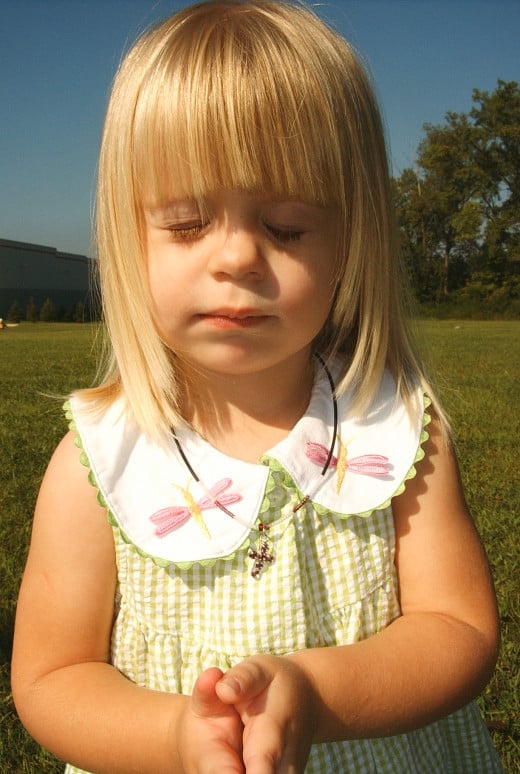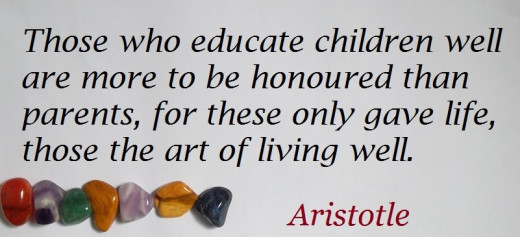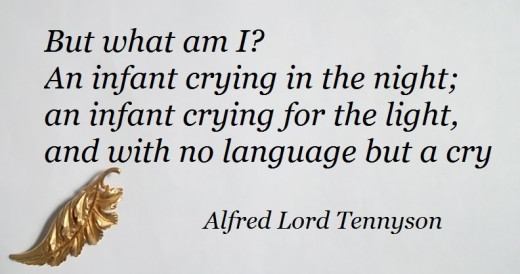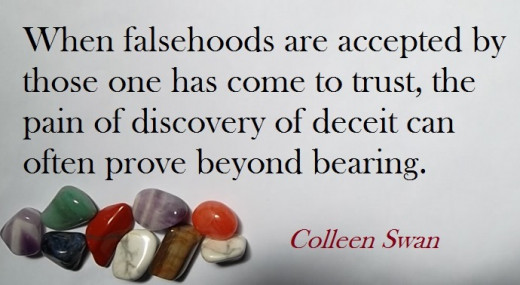The Joy and Heartbreak of Foster Care

Aspects of Foster Care: A Vast Range of Emotions
A foster parent-child relationship comes about due to the inability, temporary or permanent, of biological parents to provide a physically and emotionally healthy environment for the development of children under the age of eighteen. The point at which a child must be removed from a parent/s home is determined by social workers deputed to understand the causes and likely results of a family’s failure to connect as a unit. This forces those employed by such agencies, constrained both by finances and time, to decide if a family of origin is dysfunctional and if so, to what degree.
While provided with guidelines, an employee in children’s services agencies is expected to determine whether a family is fit to remain as a whole. As every family undergoes conflict and strife, the question becomes when anguish grows so entrenched as to justify dividing a household.
Risks and Realities of the Foster Care System
As with all avenues of human life, there are undoubtedly countless fostering relationships which create lasting memories and bonds of tenderness and affection. Still, as is prevalent in memoirs and various types of media in every area, those relationships containing cruelty and conflict are more likely to draw public notice. Thus, we hope the following scenarios will be read against the backdrop of over-all family life, with its natural times of fun and delight, intermingled with hurt, misery and despair.
“God bless Mummy, and Mummy Grace”
Whose Child Was I?
As a small girl, (later to become a renowned British actress), Jane Lapotaire the illegitimate daughter of Louise Lapotaire (father unknown), believed God to be miraculous enough to provide her with two mothers, while everyone else she knew had only one. When Jane said her prayers before bedtime, she was told to pray for “Mummy” and “Mummy Grace”.
This proved bewildering in that Louise her “Mummy” was said to live in some vague, unspecified part of the globe, while her foster mother “Mummy Grace” raised Jane as her own daughter in England. Conflicts in loyalties began to arise when Jane was six years old and her real mother, Louise, now Madame Lapotaire, started to visit her. Complications existed in that Louise, as a child had also been fostered by Mummy Grace. Louise now married to Monsieur Lapotaire and residing in North Africa had since given birth to a legitimate daughter.
Division of Loyalties Between Two Mothers
The frequency of Louise’s visits to England, and Jane’s return visits to North Africa began to escalate. By this juncture, Mummy Grace, having grown older, knew Jane would be her last foster child. In addition, she had brought up Jane from her birth, rendering their bond even deeper. Louise made little effort to explain Jane’s place in the framework of her own family. Hence during her first evening in Africa her younger half-sister voiced perplexity as to her presence.
“Jane, why are you here? They're my mummy and daddy.”

Cause For Ownership Issues
At first, in Africa, Jane felt like a combination of unwelcome stranger and reluctant guest. Still, as her visits increased, she began to have fun with her young, sprightly family. Outdoor water fights, filled with laughter, made her briefly forget Mummy Grace; still, she could not feel guilty. Ultimately, she was able to amalgamate her dual personas without sacrificing either of them. She needed to stride towards her own path which would lead to future success.
As Mummy Grace began to show signs of diminishing health, Louise also developed a serious mental imbalance. Jane progressed in her acting career, feeling compassion for both mothers, but aware of her inability to shield them from the difficulties of ageing and illness. Yet, as the title of her memoir reflects, she grew up with the sense of being “Everybody’s Daughter but Nobody’s Child”. It is always sad when a child’s love becomes a source of territorial ownership between any two adults.
Jodie a Child Almost Impossible to Love
Jodie, (pseudonym), was at the opposite end of the foster spectrum from Jane Lapotaire. While Jane felt loyalties torn between two mothers, Jodie’s behavior was such as to compel a children’s agency to plead for someone with the endurance to provide her with one last thread of opportunity to live in a family home.
Having entered the foster care system at seven, by age eight, Jodie had proved overwhelming to four families within a period of five months. As her fourth family would not allow her to stay any longer, dedicated foster carer Cathy Glass was all but coerced into giving her one final opportunity. Already fostering teenaged children, Ms. Glass, a single mother, felt reticent, nearly to the edge of refusal. Still, compassion impelled her to make this last effort.

Jodie: An Eight-Year-Old Earthquake
From the moment of entering Cathy Glass’ home, Jodie did all she could to control it. Having bypassed Cathy by shoving her way through the door, Jodie demanded an immediate snack. Later, if less than pleased with a dinner enjoyed by all the others, she threw her full plate against the wall, with no later apology. She also insulted her fellow foster siblings, ignoring Cathy’s warning that name calling and demeaning words were not allowed in her household. Only with time did Jodie unveil the source of her perverse sense of power.
Increasing Hints of Horrors Experienced
In time, a series of threats to “tell”, if her every whim was not yielded to, indicated to Cathy a level of abuse inside Jodie’s birth parent’s home which, if reported, could result in grave penalties via the judicial system. Careful questioning reinforced this belief. All too soon, it became clear Jodie had learned to turn her victimization into a toxic wellspring by which she could intimidate her parents into a state of submission by a bizarre brand of bargaining. Clinical and psychological tests confirmed Cathy’s interpretation.
What Then Was The Solution?
Despite the genuine trust and affection which developed between Cathy and Jodie, Jodie’s behavior continued to be offensive in both physical and emotional ways. Careful research on Cathy’s part enabled her to locate a home especially geared to children and adolescents suffering from emotional strife.
Once invited to become a guest in this home, Jodie felt eager to do so. At the end of her memoir, Cathy recalls visits to Jodie at this home both by herself and her teenage daughters. While initially ignoring their presence, Jodie’s behavior began to improve. Clinicians have told Cathy, due to Jodie’s early, intensive abuse, her abilities of attachment to others has been curtailed to the point of making her unlikely to expand her sphere of reciprocal caring. Jodie was later placed with new foster parents and continued to make progress, and is now believed to be living independently.
When Fostering Creates Domestic Discord
As is well-known, many children enter the foster care system as a consequence of various types of parental abuse. When “Peter” and “Lynne Barton” decided to foster a child, the foster care agency suggested “Chen” a fifteen year old Asian girl. Her mother had died, and her father was serving a lengthy prison sentence for drug dealing. Having met and liked Chen, Lynne and Peter agreed to foster her for a year, and perhaps longer.
Beginnings of Marital Acrimony
At first, the Barton’s found Chen to be sweet-tempered and helpful. Gradually, this began to change. While not expecting her initial perfect behavior to continue, they started to notice sullenness when asked to do light household tasks. In time, manipulation emerged.
By way of example, if Lynne asked her to unload the dishwasher, Chen would wait until Peter got home from work. Then, she would ask him privately, in a semi-seductive tone, “Peter, do I need to unload the dishwasher?” If he said she need not do so, Chen became defiant towards Lynne.
Soon, Lynne and Peter realized her ruse, but not before having had quarrels which hurt them both. Although her behavior improved, Chen often said she had always been her “Daddy’s special girl”. One can only wonder as to the source and perquisites of this specialness. Ultimately, while the Barton’s fostered Chen for the agreed-upon time, they refused to extend it.

Rachael: From a Child’s Perspective
At my boarding-school, letters were left at our places at the lunch table. Although not allowed to read them at lunch, most of us ignored this restriction. Still, there was one letter which I felt I must not read until I was in my room, with comparative privacy. This letter seemed to have been hand-delivered, in that its envelope had no stamp. In addition, the handwriting looked awkward, with my name misspelled. I felt an intuition as to who had written it to me; my inner sense proved accurate.
The letter, as I had thought, was from “Rachael”, a girl who took what were called special classes. Her fellow classmates were several years younger than she was. Rachael had a heart condition, and developmental challenges.
Her letter to me began, “Will you be the person that knows me?” It went onto say her social worker had suggested she choose a girl who seemed warm and reliable, then ask her to be her friend and listen to her when she felt overwhelmed by emotion. Having only been in this dorm a few weeks, I felt glad but puzzled Rachael had chosen me. Finding her as soon as I could, I thanked her for trusting me.
“Because Nobody Would Believe Me”
It took some while for Rachael to say, slowly at first, then with more openness, she was in foster care, and her “dad”, came to her room at home every night, said, “Hi, honey,”, and then treated her like what he called “a healthy young woman”. When she struggled, he threatened that if she reported him, no-one would believe a girl who was “slow” regarding a man who was on the school’s board of trustees. Besides, if she left their home, who else would take her? Rachael realized the truth of this menace, in that it had proved difficult for her social worker to find a placement for her.
Losing Contact With Rachael
A few months after our friendship began, Rachael turned eighteen. This meant she had to be transferred from our school to a group home where she could learn fruitful skills. She became an excellent flower arranger, gaining a part-time job at a popular florist’s shop. She and I exchanged a few notes, but involved in different lives, our correspondence waned.
Then, one day in morning chapel, the school’s director announced Rachael had died due to complications involving her heart condition. For the next few hours, the halls of our school were hushed. While too young to fear mortality in its true sense, someone close to our age had died. I started to think about how she had lived, in a way I had not, while she was alive. Much as I would have liked to have helped, I was only fourteen years old, at a time when such issues as hers were hinted at only in whispers.
The rage of an adult child

The Necessity of Early Attachment Between a Child And The Parental Figure
In one of my first jobs, I worked for a man who told me that for his twenty-first birthday his parents had bought him a costly watch, and he had deliberately smashed it. When I asked if he regretted it later, he said, with a joyless laugh, “My only regret was I could have sold it; but it was more fun to see my mom and dad’s eyes after they saw me stomp on it.”
As time passed, I began to suspect him of being dishonest with clients. The end came when I realized he had signed my name on a fraudulent invoice. Observing my shock and hurt, he shrugged and, with an echo of that same hostile laugh said, “Hey, I’m the boss, kiddo.” At that point, I sat down, wrote my letter of resignation, and placed it on his desk.
The Source of His Absence of Conscience
Later, I learned from a former colleague that, as the child of eminent parents, he saw little of them. A few weeks after his birth, these parents had arranged for him to be fostered by neighbors while they travelled to various faraway places in order to build an audience for their business interests. While these neighbors provided for his basic needs, there was sparse affection. When his parents did return from their trips abroad, they seemed more like visitors. They brought him unique gifts from various countries, but spent little time with him. Though I cannot say with certainty this treatment was at the core of his ruthlessness, clinical studies have established that a sense of early abandonment is linked to aberrant behavior in adulthood.

From Child to "Trust Bandit"
What is the link between lack of bonding in childhood and antisocial behavior in later years? In their book, High Risk, Dr. Ken Magid and Carole A. McKelvey refer to children who have not felt cherished as infants or toddlers as “trust bandits” in that deprivation of the sense of parental tenderness can ruin or impair the ability in the later adult to trust others. The subliminal sense is embedded: “If the two people who gave birth to me don't love me, why should I expect anyone else to?”
Hence, if no-one can be trusted, the world is filled with a series of real or potential enemies. As foes, they must be treated as such, so why feel guilt at cheating/defeating anyone who might become, at any moment, a deadly threat on life’s battlefield? Logically, why develop a conscience, as it would only spawn weakness. Compassion towards others is a response we learn from the ways we are treated during our developing years.

Survival May Include Charm And Control
Feral children, (those found in the wild) have no concept of guilt or a wish to treat others with kindness. Their only goal is to survive-a skill “trust bandits” often possess in abundance. In fairness to these children, they tend to feel forced to find ways to charm and appeal to others, as they are in the control of adults with whom they have no blood tie or connection. To paraphrase my former employer, those meant to provide them with the ability to feed, clothe and house them are truly their bosses.
Further Effects of The Lack of Affection
Akin to seedlings which fail to thrive if deprived of adequate soil, water or sunlight, infants and young children who do not receive nurturing can tend to become limited in their learning abilities. Given the mind-body connection, it is not surprising that lack of the stimulus of normal parent-child loving can stunt both physical and mental growth. This is exacerbated where significant amounts of drugs, alcohol or nicotine have been consumed during pregnancy.
There may also be a predisposition towards rage and depression innate in some newborns. This can stem from the shortage of the brain chemical serotonin, one of the endorphins which contributes to well-being, combined with a larger than usual supply of cortisol, a chemical which can generate hostile emotions.
Within a healthy family framework, such a mild imbalance can be righted by acceptance of the child as he is, while showing him non-destructive ways of freeing himself from anger and a sense of having been neglected. Still, if a safety net is never provided, or offered after the psyche of a child has hardened against affection, this is rarely feasible.
Sad Memories Need Not Always Lead to Antisocial Behavior
Fortunately, many who experience a sense of abandonment during childhood do not become bandits of any kind. Whatever hurts they retain appear only as echoes, when, as adults, a harmless experience awakens, the anguish kept underneath adult self-confidence.
In his book, The Witch Must Die, Sheldon Cashdan recounts an afternoon on which he and several other adults visited an art exhibition. One of them, Virginia, at some point became detached from the group. Absorbed in their own pursuits, for some while no-one noticed her absence. Then, before leaving, they realized she was not among them. After a brief search, they found her sitting outside the booth of the security guards, in those tears which might have been expected from a child who felt lost.
Later, Virginia explained that, during a period of destitution, her mother had placed her in an orphanage. At her first opportunity, Virginia’s mother had brought her back home. Still, this brief stay in the care of strangers, never sure when or whether her mother could return to bring her to her true home, left a wound which remained.
Please enter the poll
Have you ever considered accepting a foster child into your home?
What Then is The Solution to a Sense of Early Abandonment?
In truth, at this point, none has been found, or at least none with any definite probability of lasting recovery. At one end of the spectrum are those like Virginia, scarred to some extent, but not feeling the need to turn her grief into aggression. At its utmost extreme are those who kill without conscience.
© 2015 Colleen Swan








